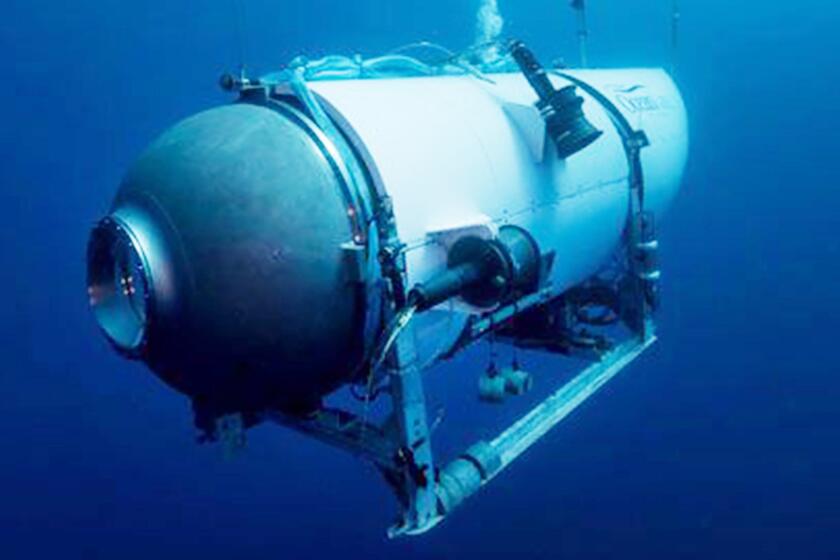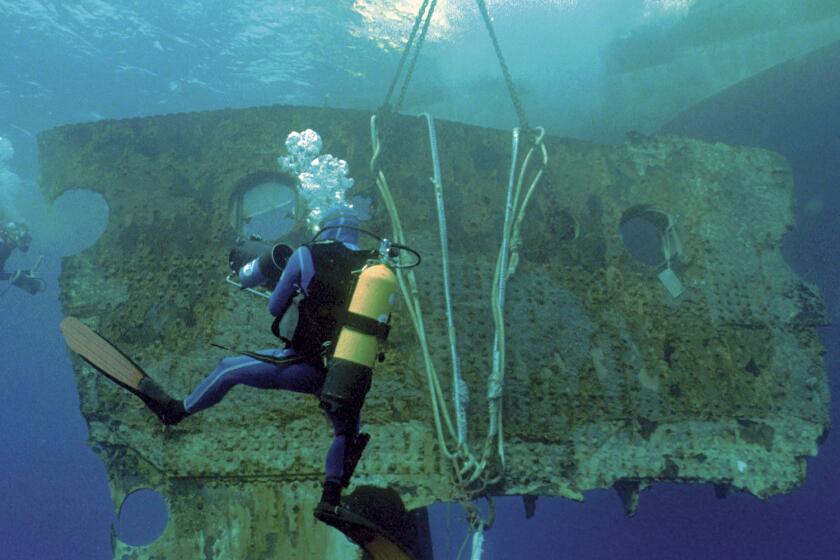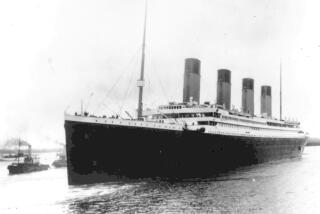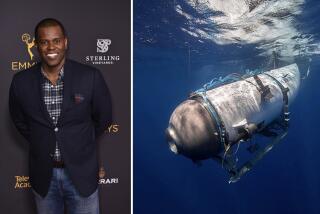‘Catastrophic’ safety concerns raised about sub long before ill-fated Titanic voyage
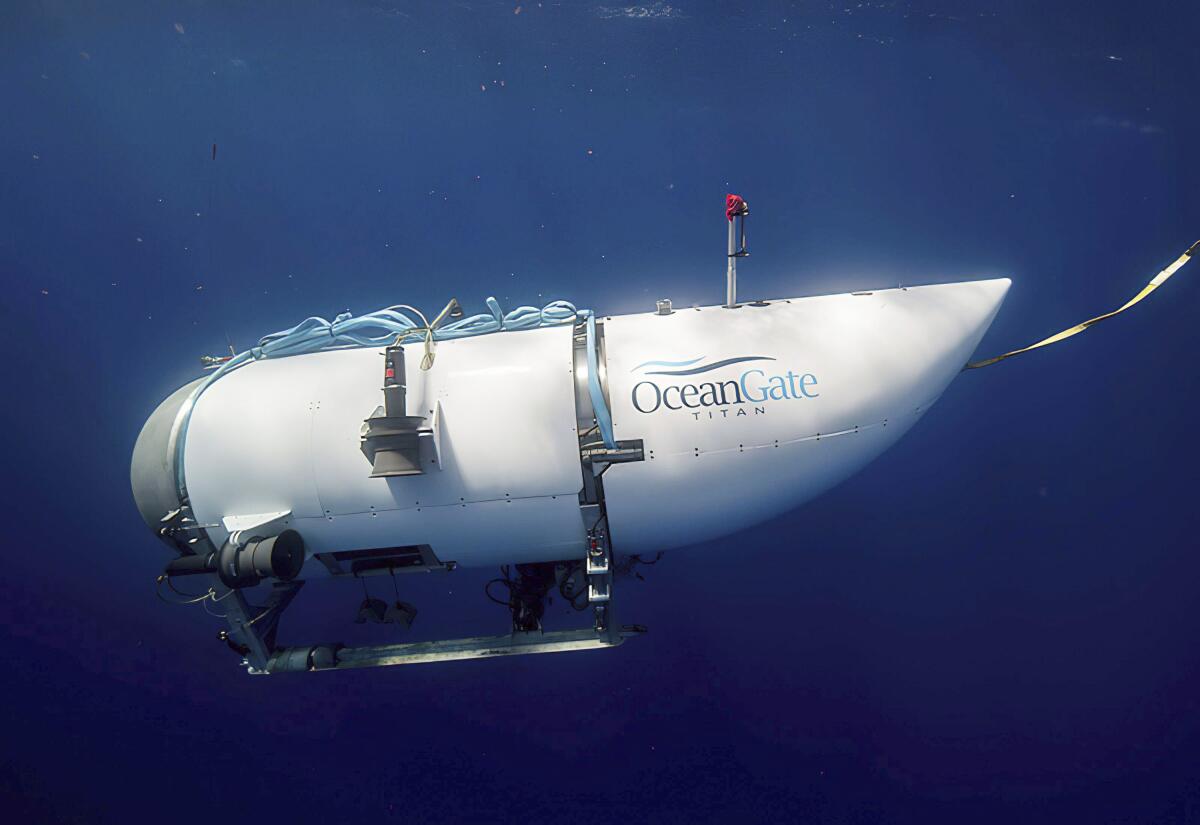
- Share via
Long before a submersible vanished on an expedition to explore the wreck of the Titanic, concerns had been raised about the safety of the vessel.
The sub lost contact with the Canadian research vessel Polar Prince about 1 hour and 45 minutes into its dive Sunday morning, about 900 miles east of Cape Cod, Mass., the U.S. Coast Guard said.
The search is unfolding in a far-flung location about 13,000 feet deep, officials have said.
Here is what we know from Times coverage:
What do we know about the submersible?
OceanGate organized the dive and owns and operates the missing submersible. The company has been running expeditions with “citizen explorers” to the Titanic since 2021 on its Titan sub, according to its website. The trip can cost around $250,000.
Banging sounds have reportedly been detected in the remote area of the Atlantic where a tourist submersible with five people aboard went missing.
According to its website, OceanGate is a privately owned company in Everett, Wash., established in 2009, that operates a trio of five‑person submersibles for “site survey, scientific research, film production and exploration travel.” Its vessels can reach depths of about 13,123 feet, the company said.
The company offers an eight-day, seven-night voyage to the Titanic wreck, according to its website. The round-trip from St. John’s in Canada takes “intrepid travelers” to explore the Titanic wreck. Dives can begin as early as Day 3.
What have been the safety concerns?
Some in the submersible industry expressed deep concern about the Titan and what they described as OceanGate’s refusal to adhere to certain industry safeguards. In a private letter to Stockton Rush, the chief executive of OceanGate, in March 2018, the Manned Underwater Vehicles Committee at the Marine Technology Society called on him to allow for third-party safety review of OceanGate’s submersibles. Rush is aboard the missing vessel.
“Our apprehension is that the current experimental approach adopted by OceanGate could result in negative outcomes (from minor to catastrophic) that would have serious consequences for everyone in the industry,” the letter stated.
William Kohnen, the chairman of the committee, told The Times: “OceanGate raised a number of eyebrows and was the subject of many conversations,” Kohnen said.
A search-and-rescue mission is underway after a submersible used for tourist expeditions to view the Titanic wreck went missing Sunday with five aboard.
That same year, David Lochridge, a former OceanGate employee, raised red flags about the Titan in litigation against the company, “particularly OceanGate’s refusal to conduct critical, non-destructive testing of the experimental design of the hull.” Lochridge, a submersible pilot hired to do quality and safety inspections, said he was terminated for coming forward. He said he disagreed with Rush’s decision to “subject passengers to potential extreme danger in an experimental submersible.”
How has OceanGate responded?
OceanGate said in its own court papers that Lochridge did not accept information provided by a lead engineer on the vessel’s safety. It also claimed that he filed a false report with the Occupational Safety and Health Administration and that he violated his contract by discussing the company’s confidential information with outside parties.
The case was settled in 2018. Lochridge did not immediately respond to a request for comment.
In a 2022 article in Maptia, a digital storytelling platform, Rush took shots at the submersible industry.
“One of the jabs that gets thrown at us is: ‘Hey, you aren’t certified.’ But how can you do something new and get certified?” Rush asked. “If the rules exist for how to do it, then you are operating outside of the rules by doing something different. I think it was MacArthur who said, ‘You are remembered for the rules you break.’ We try to break the rules intelligently and intentionally.”
More to Read
Sign up for Essential California
The most important California stories and recommendations in your inbox every morning.
You may occasionally receive promotional content from the Los Angeles Times.
